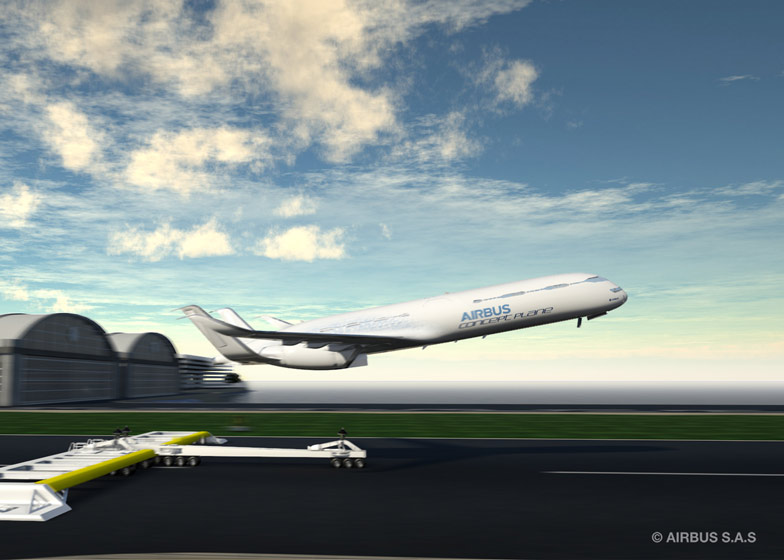The aeroplanes of the future will be catapulted into the sky, fly in formation like birds along "express skyways" and glide into airports with their engines turned off, according to aviation company Airbus.
The Smarter Skies project, unveiled this week, sets out a vision for more sustainable air travel by the year 2050. Airbus claims that by flying in a V-formation like birds, aircraft could reduce drag to cut emissions by up to 25 per cent and reduce journey times by an average 13 minutes. Formation flying would also allow air traffic control rooms to treat each flock of planes as a single entity, effectively simplifying their workload.
The project also predicts that by 2050, aircraft will be able to intelligently select the most efficient flight path according to conditions and the paths of other planes. Beyond 2050, it says, a system for assisted take-off could sling the plane into the air using motors built into the track, which would minimise noise and allow for shorter runways.
Airbus predicts that if the air traffic management systems on board aircraft were successfully optimised, the aviation sector would save 9 million tonnes of fuel a year and 28 million tonnes of CO2 emissions.
The project illustrations show a conceptual aeroplane by Airbus that we reported on last year, with longer, slimmer wings and onboard entertainment including a virtual golf course.
Read more about the predictions on the Airbus website.
See all our stories about airports »
See all our stories about transport »

